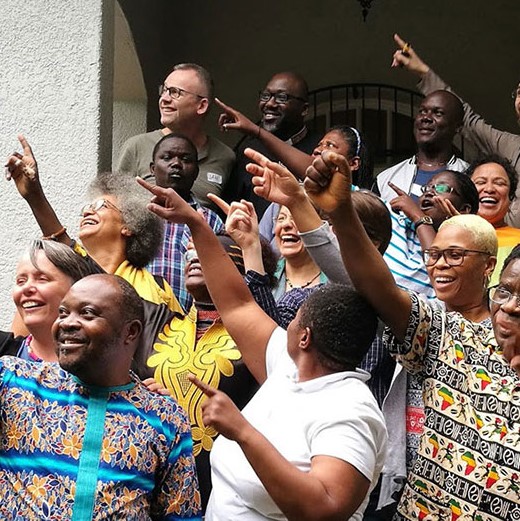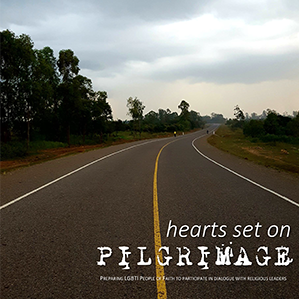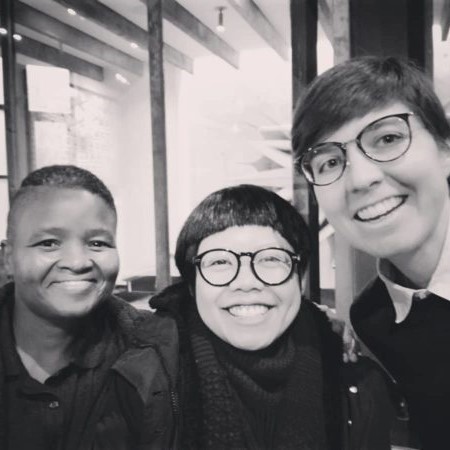Posted by: Antonia Kruger-Ayebazibwe
The situation of LGBT rights in Africa is complex and multifaceted, with significant variations between countries. From the perspective of inclusive faith, there is a growing recognition of the need to embrace and support LGBT individuals within faith communities. However, this journey towards inclusivity faces substantial challenges given the prevailing social, cultural, and legal landscapes.
The legal environment in many African countries remains hostile towards LGBT individuals. Many nations, such as Nigeria, Uganda, and Kenya, criminalize same-sex relationships with harsh laws that penalize LGBT individuals with imprisonment and, in some cases, even the death penalty. Conversely, South Africa stands out for its progressive legal framework. Its constitution explicitly prohibits discrimination based on sexual orientation, and the country has legalized same-sex marriage since 2006.
Social attitudes towards LGBT individuals are often hostile, with homophobia deeply ingrained in many communities influenced by traditional beliefs, colonial-era laws, and misinformation. Despite this, there are pockets of growing acceptance and support, often driven by younger generations and urban populations.
Against this background, efforts to create or engage faith communities to support the inclusion of LGBTI people are often challenging, but also very important since inclusive faith communities play a vital role in HIV prevention and care, especially for key populations who are often marginalized and face significant barriers to accessing healthcare. These communities can make a difference in several significant ways, as evidenced by their impact on specific communities across Africa.
Reducing Stigma and Discrimination
Faith communities that embrace inclusivity can help alleviate the stigma and discrimination often associated with HIV/AIDS. This reduction in stigma is crucial because it can prevent individuals from seeking testing, treatment, and support. For instance, in Uganda, the Anglican Church has actively engaged in reducing HIV/AIDS-related stigma through community programs and support groups. This effort has significantly improved the willingness of individuals to seek care and testing. By promoting messages of acceptance and compassion, faith communities can create an environment where people feel safe and supported. Unfortunately, as the Anglican Church in much of Sub Saharan Africa and specifically, East and West Africa is at the forefront of faith-based homophobia, this effort is patchy at best and does not translate into the provision of inclusive services for LGBTI people.
Providing Education and Awareness
Inclusive faith communities can be powerful platforms for disseminating accurate information about HIV/AIDS. They can educate their members about the importance of prevention methods such as safe sex practices, regular testing, and the use of pre-exposure prophylaxis (PrEP). In Tanzania, religious leaders have been instrumental in promoting HIV/AIDS awareness and education, dispelling myths, and encouraging preventive measures such as condom use and regular testing. The Evangelical Lutheran Church in Tanzania has implemented comprehensive HIV education programs that reach thousands of individuals across the country. Unfortunately the heteronormativity of these interventions often means that they are not fully inclusive of LGBTI people.
Supporting Access to Care
Faith communities often have extensive networks and resources that can be leveraged to improve access to healthcare services. They can facilitate connections between their members and local health services, provide transportation to medical appointments, and offer financial assistance for medication and treatment. In Zimbabwe, churches have established partnerships with healthcare providers to offer mobile clinics and transportation services for people living with HIV, significantly enhancing access to medical care.
These networks of service provision and the fact that they often replace in part or wholly services provided by the state, make work with faith communities extremely critical if appropriate services are to be provided to key populations, who are still often stigmatised and discriminated against by faith communities.
Offering Emotional and Spiritual Support
Living with HIV can be emotionally and spiritually challenging, and these communities can provide crucial support to individuals living with HIV and their families. Through counseling, prayer groups, and supportive social networks, they can help individuals cope with the psychological aspects of the disease. In Southern Africa, work over years by a partnership between the Fellowship of Christian Councils of Southern Africa and a group of Scandinavian Churches has developed the One Body material which has significantly shifted the narrative around HIV/AIDS within churches. This has made it more possible for churches to provide emotional and spiritual support, embracing those with HIV/AIDS and offering them a community of care and compassion. The Methodist Church of Southern Africa has also established support groups that offer both spiritual and emotional support to those affected by HIV/AIDS.
Advocating for Policy Change
Faith leaders often have significant influence in their communities and beyond. Inclusive faith communities can advocate for policies that protect the rights of people living with HIV and ensure they have access to necessary care and services. This advocacy can include lobbying for anti-discrimination laws, improved healthcare access, and funding for HIV prevention and treatment programs. In Mozambique, faith-based organizations have successfully lobbied for better healthcare policies and increased funding for HIV/AIDS programs, demonstrating the power of collective advocacy. The Council of Churches in Namibia has also been active in advocating for the rights of people living with HIV.
Creating Safe Spaces
Communities that prioritize inclusivity can create environments where individuals from key populations, such as LGBTQ+ individuals, sex workers, and people who use drugs, can receive support without fear of judgment or exclusion. These safe spaces are essential for building trust and encouraging individuals to seek care. In Nigeria, some churches have created safe spaces for men who have sex with men (MSM) to receive support and access HIV prevention and treatment services without fear of stigma or discrimination. The House of Rainbow, an LGBT faith-based organization in Nigeria, provided a safe space for LGBTQ+ individuals to receive spiritual and emotional support until it was closed down due to public outcry.
Building Strong Community Ties
Strong, inclusive faith communities can foster a sense of belonging and community solidarity, which are critical for the well-being of individuals living with HIV. When people feel connected and supported by their community, they are more likely to engage in healthy behaviors and adhere to treatment regimens. In Ghana, faith communities have played a crucial role in strengthening community ties, which has led to improved health outcomes for people living with HIV. The Presbyterian Church of Ghana has been at the forefront of creating inclusive and supportive environments for people living with HIV, but it is unclear how inclusive these environments are for key populations.
Conclusion
Inclusive faith communities are essential allies in the fight against HIV/AIDS. By promoting acceptance, providing education, supporting access to care, offering emotional and spiritual support, advocating for policy change, creating safe spaces, and building strong community ties, they can make a significant impact on the lives of individuals living with HIV and on public health outcomes overall. However, ingrained negative social attitudes towards LGBT individuals influenced by conservative understandings of religion, traditional beliefs, colonial-era laws, and misinformation continue to make the work with faith communities very challenging. Organizations such as the Global Interfaith Network for People of All Sexes, Sexual Orientations, Gender Identities and Expressions (GIN-SSOGIE) continue to work to support inclusive faith communities across Africa through methodologies which capacitate LGBTI people of faith to establish support groups and engage in dialogue with within faith communities can shift hearts and minds leading to greater inclusion..





